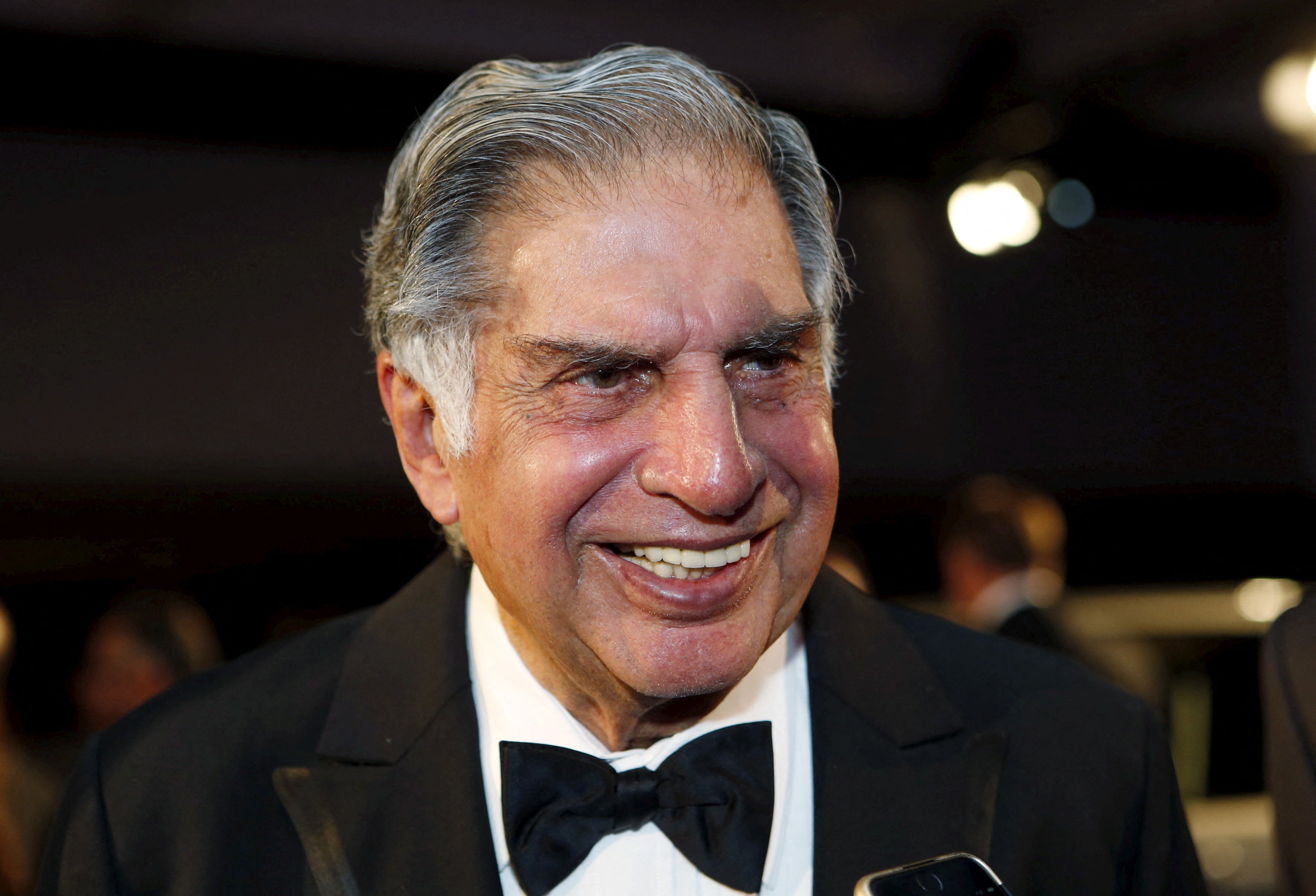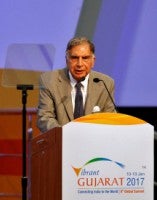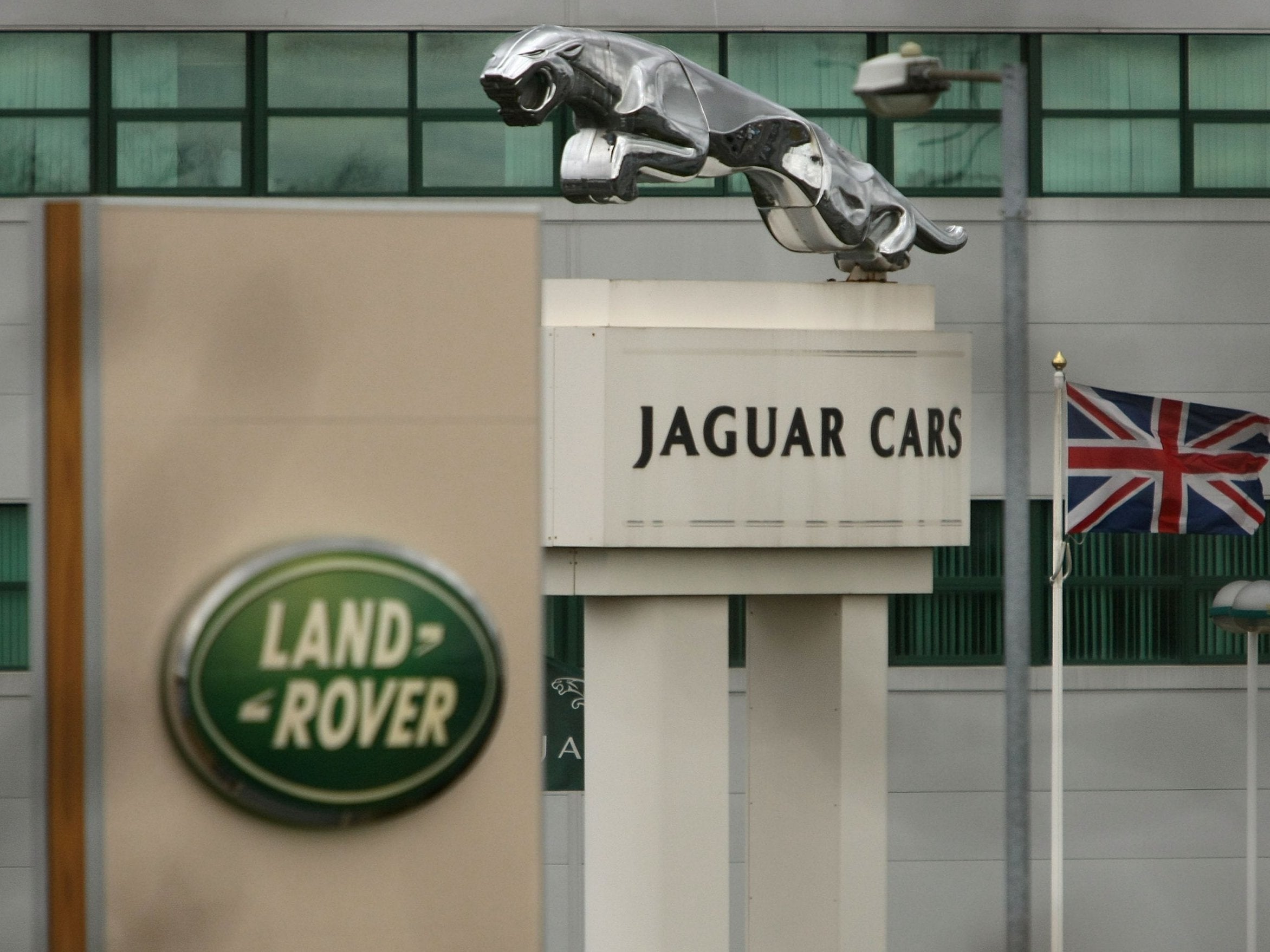Ratan Tata death: Former Tata Group chairman dies aged 86
Under Ratan Tata, the group bought companies including Tetley, Jaguar and Land Rover

Your support helps us to tell the story
From reproductive rights to climate change to Big Tech, The Independent is on the ground when the story is developing. Whether it's investigating the financials of Elon Musk's pro-Trump PAC or producing our latest documentary, 'The A Word', which shines a light on the American women fighting for reproductive rights, we know how important it is to parse out the facts from the messaging.
At such a critical moment in US history, we need reporters on the ground. Your donation allows us to keep sending journalists to speak to both sides of the story.
The Independent is trusted by Americans across the entire political spectrum. And unlike many other quality news outlets, we choose not to lock Americans out of our reporting and analysis with paywalls. We believe quality journalism should be available to everyone, paid for by those who can afford it.
Your support makes all the difference.Ratan Tata, the former Tata Group chairman has died aged 86, the group said in a statement late on Wednesday.
Mr Tata, who ran the conglomerate for more than 20 years, had been undergoing intensive care in a Mumbai hospital, two sources with direct knowledge of his medical situation told Reuters earlier on Wednesday.
After graduating with a degree in architecture at Cornell University, Mr Tata returned to India and in 1962 began working for the group his great-grandfather had founded nearly a century earlier.
He worked in several Tata companies, including Telco, now Tata Motors Ltd, as well as Tata Steel Ltd, later making his mark by erasing losses and increasing market share at group unit National Radio & Electronics Company.
In 1991, he took the helm of the conglomerate when his uncle JRD. Tata stepped down - the passing of the baton coming just as India embarked on radical reforms that opened up its economy to the world and ushered in an era of high growth.
In one of his first steps, Ratan Tata sought to rein in the power of some heads of Tata Group’s companies, enforcing retirement ages, promoting younger people to senior positions and ramping up control over companies.

A licensed pilot who would occasionally fly the company plane, Ratan Tata never married and was known for his quiet demeanour, relatively modest lifestyle and philanthropic work.
About two-thirds of share capital of Tata Sons, the group’s holding company, is held by philanthropic trusts.
He founded telecommunications firm Tata Teleservices in 1996 and took IT firm Tata Consultancy Services, the group’s cash cow, public in 2004.
But to grow properly, the group determined it needed to look beyond Indian shores.
The group purchased British tea firm Tetley in 2000 for $432 million and Anglo-Dutch steelmaker Corus in 2007 for $13 billion, at the time the biggest takeover of a foreign firm by an Indian company. Tata Motors then acquired British luxury auto brands Jaguar and Land Rover from Ford Motor Co in 2008 for $2.3 billion.

His leadership at Tata was not without controversy - most notably a bitter public feud after the company ousted Cyrus Mistry, a scion of the billionaire Shapoorji Pallonji clan, as chairman of Tata Sons in 2016.
The Tata Group said Mistry had failed to turn around poorly performing businesses while Mistry accused Ratan Tata, who was chairman emeritus of the conglomerate, of interfering and creating an alternate power centre at the group.
After he stepped back from the Tata Group, Ratan Tata became known as a prominent investor in Indian startups, backing companies including digital payments firm Paytm, Ola Electric, a unit of ride-hailing firm Ola, and home and beauty services provider Urban Company.
Among his many awards, he received the Padma Vibhushan, India’s second highest civilian honour, in 2008 for exceptional and distinguished service in trade and industry.
Join our commenting forum
Join thought-provoking conversations, follow other Independent readers and see their replies
Comments